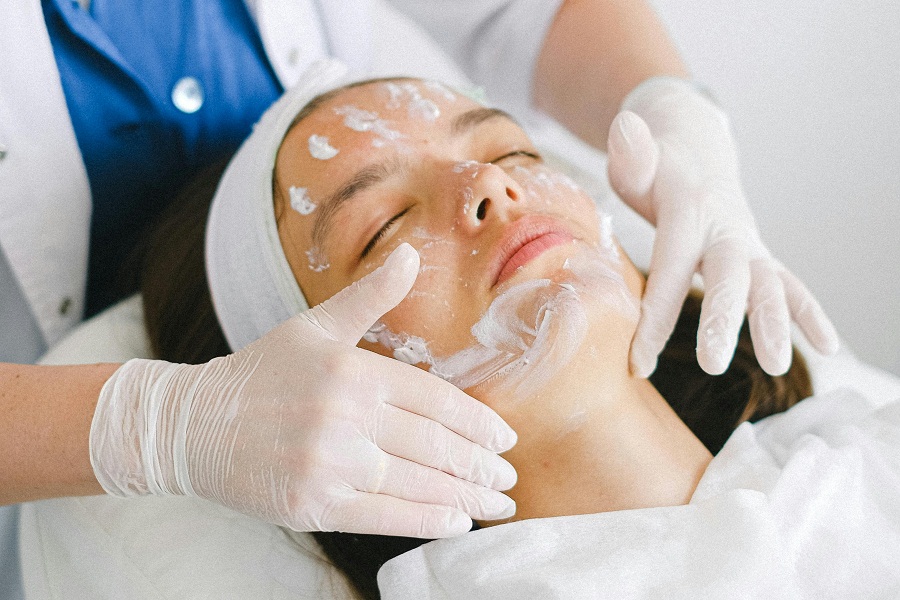
Published :
Updated :

One of the finest English musicians, David Bowie, is credited with this famous quote about ageing. "Ageing is an extraordinary process in which you become the person you always should have been."
Today, people worldwide are constantly proving age to be a mere number. Age, in fact, often brings the best out of us, and each decade has its unmatched beauty. However, even though age is not something we need to escape from, we can work on managing the overwhelming changes it brings to our physical and emotional well-being.
What causes ageing?
Before considering the ageing process, our inherent enemy, we must understand what 'ageing' is. According to the USA National Centre for Biotechnology Information, ageing is the time-related deterioration of the physiological functions essential for survival and fertility. Over time, our bodies tend to navigate many changes.
How can these changes be controlled to control the overall ageing process?
Our cells undergo drastic changes, like DNA damage and reduced efficiency in repairing cellular damage. These cellular changes can lead to reduced bodily function and regeneration capacity overall. A healthy, rich-in-antioxidant diet is the most effective defence mechanism against cellular ageing.
You must drink plenty of water, stay hydrated, and incorporate leafy vegetables, colourful fruits, and nuts into your diet. Nutritionists also recommend engaging in moderate exercise regularly and avoiding toxins like air and water pollution as much as possible.
Tissue changes
With age, the body's tissues undergo structural and functional alterations. Collagen and elastin, which are responsible for providing elasticity to the skin, decrease, leading to wrinkles and sagging skin.
Muscle mass decreases, resulting in weakness and reduced mobility. Bone density decreases, making those more vulnerable to fractures.
Even though tissue changes are inevitable, like it is impossible to go backwards in time, managing chronic medical conditions like diabetes, hypertension, and obesity can minimize them.
Applying sunscreen (at least SPF 30+) from the time the sun shows up until it sets in the West is also crucial, as sun exposure is the most potent reason for tissue damage.
Apart from these lifestyle management, there are several invasive and non-invasive medical treatments to prevent your tissues from getting damaged. Dr Sadia Tabassum, an aesthetic dermatologist working for Dr Jhumu Khan's Laser Medical, talked about how these treatments have become increasingly popular in Bangladesh. "Injectable filler, botox, microdermabrasion, laser therapy, chemical peel, and PRP are some of the commonly used non-invasive treatments to control signs of ageing. With age, our body loses its collagen and elasticity, resulting in saggy skin, wrinkles, fine lines around the nose and mouth, and increased hyperpigmentation problems like melasma and scars. We usually combine Botox and dermal fillers to treat sagging and wrinkles for maximum benefit with little to no downtime for recovery. Laser treatment and chemical peeling are popular for pigmentation treatment." However, Dr Sadia said that the results of these treatments are temporary and need to be redone every year for maintenance.
Organs function
Organs have to live through age-related changes, which affect their adaptability. The heart's pumping capacity may decrease, causing reduced cardiovascular function.
The kidneys may experience decreased filtration capacity, adversely affecting waste removal and fluid balance. Brain function may decline, resulting in dementia and cognitive decline.
Regular medical checkups, an active lifestyle with abundant physical exercise, and less exposure to toxins can keep the organs going.
For a fully functioning brain, the experts suggest consuming a lot of antioxidants and good fats like fish, eggs, avocado, chia seeds, and nuts. Olive oil is a healthier option than vegetable oil for cooking.
Hormonal Changes
Hormonal levels are bound to fluctuate with age. It is more prominent in women. They experience menopause, leading to reduced estrogen levels. It results in unpleasant symptoms like hot flashes, excessive sweating and mood changes.
Men may experience a decline in testosterone levels, impacting their muscle mass, libido, and energy levels. There is no possible way to stop the hormonal changes without going through expensive and somewhat risky hormonal treatment.
Still, the good news is that treating the symptoms of hormonal changes is doable and practical. According to a study by NIH, USA, physical exercise can reduce the frequency of hot flashes. It can improve other post-menopause symptoms like depression, anxiety, and insomnia, resulting in a fresh, youthful mind.
Older women also face problems like genital dryness and urinary infections that cause uncontrolled urination. Dr. Sadia Tabassum told us that even this disease is treatable by estrogen replacement therapy and medications.
Metabolism and immunity
Metabolism slows down with age, leading to weight gain and changes in body composition. This also increases the risk of conditions like obesity, diabetes, and metabolic syndrome.
Our immunity system is equally disrupted as our metabolism decreases. It makes the body susceptible to infections, and the body's ability to respond to vaccines declines considerably. Managing these inescapable phases of bodily functions requires a combination of genetics, a healthy and balanced lifestyle, and frequent medical checkups.
In this regard, Marc R. Blackman, MD, chief of the laboratory of clinical investigation of the National Center for Complementary and Alternative Medicine, says, "Anti-aging is not so different from anti-puberty or anti-pregnancy. This is a natural process." Therefore, the idea is always to minimize the signs of it and enhance our liveliness, not denying it."
dattasharba@gmail.com


 For all latest news, follow The Financial Express Google News channel.
For all latest news, follow The Financial Express Google News channel.